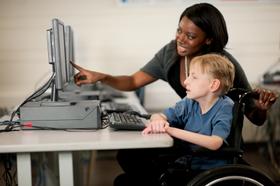The start of a new school year can bring a mix of emotions for parents and children - from excitement and anticipation to anxiety and fear of the unknown. It's also a time when parents have to buy school supplies, clothes, uniforms, smart devices, and more. This article, however, will focus on the transition from being away from school to resuming the structured routine that is the essence of a public school education.
With some preparation, navigating this transition smoothly and setting your child up for success in their new grade is possible. Here's how to tackle the 'back to school' season, regardless of your child's grade level or family's circumstances.
With fears and potential adaptations still ahead for parents and children, return to school is always a time when parents and teachers revisit what is important for children and how to best support their positive development. Marilyn Price-Mitchell
PK-Kindergarten
Building a Routine
For many children, starting pre-K or kindergarten is their first taste of a structured daily routine. Establishing and practicing routines - like a consistent bedtime and a morning routine that includes getting dressed, brushing teeth, and eating breakfast - can help your child adjust more easily to the school day. Creating a visual schedule or using alarms and reminders can be valuable in maintaining consistency for families with single parents or busy schedules.
Reading Readiness
Strengthening pre-literacy skills can set the foundation for academic success. Simple activities like reading to your child daily, practicing the alphabet, and introducing them to words and their meanings can help immensely. Local libraries often provide free resources and reading programs for families from all backgrounds.
Social Skills
School is as much a social experience as it is an academic one. Prepare your child by teaching them basic social skills like sharing, taking turns, and following instructions. Engaging in playgroups or community events can provide additional opportunities for social interaction for children from single-parent homes.
This video offers 20 hacks for preparing for back-to-school.
Elementary Grades
Academic Preparation
Continual learning is vital to a smooth transition to a new grade. Help your child practice reading and math over the summer to keep their skills sharp. Look for free or low-cost online resources and educational apps that can make learning fun.
Setting Expectations
Discuss what behavior is expected at school. Talk about respect for teachers and classmates, the importance of listening, and following school rules. Kids model adult behavior, so showing care and consideration in your interactions will reinforce this lesson.
Technology Skills
With digital tools becoming integral parts of the classroom, ensuring your child is prepared is essential. Teach them basic keyboarding skills and online safety. Many schools and local libraries offer free computer literacy programs that families can utilize.
Middle School
Organizational Skills
The transition to middle school often involves an increase in workload and responsibilities. Help your child develop organizational skills by teaching them to use a planner or digital tools for tracking assignments.
Emotional Changes
Adolescence brings a wave of emotional changes. Maintain open communication with your child, providing a safe space for them to express their feelings and concerns. Connecting with local community centers can provide access to free or low-cost mental health resources and support groups.
Community Resources
Especially for low-income families, community resources can play a vital role in supplementing academic learning. Look into local tutoring programs, sports clubs, art classes, and music lessons; many offering scholarships or reduced fees based on income.
This video offers suggestions for back-to-school preparation for single parents.
High School
Academic Pressure
High school often comes with increased academic pressure. Teach your child effective time-management strategies and stress-management techniques. Encourage regular study habits rather than cramming and support them in finding a healthy balance between academics, extracurricular activities, and social life.
College and Career Preparation
The high school years are critical for exploring future career paths and preparing for college. Guide your child to research colleges, prepare for standardized tests, and explore potential career paths. Local community centers and libraries often provide free workshops and resources for college and career planning.
Balancing Responsibilities
Finding a balance between school, work, and personal life can be challenging for teenagers with jobs. Discuss time management and prioritization. Foster a sense of responsibility but ensure they are not feeling overwhelmed.
Whether you are a single parent, part of a low-income household, or a well-off family, remember that preparation, open communication, and a consistent routine are critical to a successful 'back to school' transition. Most importantly, provide emotional support to your child as they navigate the challenges and triumphs of the new school year. After all, education is not just about academics; it's also about personal growth and development. Best of luck for the new academic year!
Questions? Contact us on Facebook. @publicschoolreview
#BackToSchool #AcademicSuccess #FamilySupport #EducationForAll















